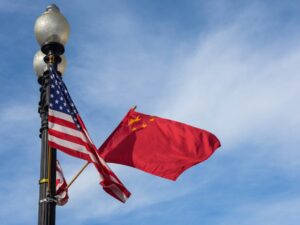
The agricultural sector is undergoing a process of digitalisation that is redefining the way in which food is produced, distributed and consumed. The incorporation of new technologies has led to a more efficient and transparent food chain, facilitating an unprecedented connection between the field and the consumer’s table.
Digital traceability as the axis of transparency
One of the main innovations of this transformation is the improvement in the traceability of food products. The ability to follow the journey of a product from its origin to its final consumption has become a key aspect for consumer confidence, as well as for production efficiency and competitiveness in international markets.
The use of blockchain technology is essential in this context, as it allows for the creation of an immutable digital record that is accessible to all the actors involved. This means that each stage of the process, from sowing to final sale, is documented and available for scrutiny by consumers, distributors and regulators.
This system not only provides security against possible outbreaks of contamination, but also strengthens the relationship between producers and consumers. Now, anyone can scan a QR code in a supermarket and obtain detailed information about the origin of the product, the agricultural practices used, and even the environmental conditions in which it was grown.
Technological inclusion for small and large farmers
One notable aspect of digitalisation is its potential to include producers of all sizes. Large farms have led the way in adopting these tools, but small farmers are also joining the revolution. Thanks to accessible platforms and scalable solutions, local producers can demonstrate the authenticity and quality of their products, bringing a wider variety of high-quality food to the shelves.
This digital integration is also helping to raise standards for the industry as a whole. By incorporating technology, both small and large producers can optimise their efficiency and improve competitiveness, benefiting consumers with wider access to safe and sustainable products.
Technological innovations to improve agricultural production
Modern agriculture relies on a diverse set of technological tools. From IoT sensors to drones and data analytics systems, these solutions are transforming the way farmers manage their crops. Sensors, for example, allow for real-time monitoring of parameters such as soil moisture, temperature and plant health, helping to make more informed decisions.
This approach, known as precision agriculture, relies on the efficient use of resources. Through constant monitoring, farmers can adjust the exact amount of water or fertilizer needed based on specific soil conditions. Such practices not only improve yields, but also reduce wasted inputs, optimizing the sustainability of operations.
Drones, for their part, have acquired a crucial role in the management of large tracts of land. Equipped with high-resolution cameras, they are capable of detecting problems such as pests or diseases in plantations. The speed and precision in identifying these factors allows farmers to act before damage becomes significant, optimising both the quality and quantity of production.
Data analytics is another key element in this new era of agriculture. By integrating historical and real-time data, farmers can develop better strategies for planting, harvesting and distributing their products. This includes everything from choosing crop varieties to predicting yields, all based on algorithms that maximize efficiency and reduce environmental impact.
Automation and the future of agricultural work
Another rapidly developing area is automation. Advanced machinery such as autonomous tractors and robotic harvesters are facilitating the transition to more efficient agriculture. Not only can these machines operate around the clock, but they do so with a precision that minimizes errors and optimizes resources. In addition, automation helps mitigate labor shortages, a recurring problem in the industry.
Robotics and automation not only improve productivity, but also allow farmers to reduce operational costs and focus on more strategic tasks. With less need for manpower for repetitive tasks, workers can spend their time on monitoring, data management and process improvement, thus raising the level of professionalization in the agricultural sector.
A more empowered and informed consumer
Technology isn’t just transforming the production side; it’s also empowering consumers. Today, shoppers have access to detailed information about the food they buy, from its origin to the practices used in its production. This transparency is driving a growing demand for sustainable and ethical products, pushing the industry toward greater social and environmental responsibility.
Mobile apps and websites allow consumers to scan QR codes and discover the full journey of their food. This includes details such as organic certifications, carbon footprint and social impact of products. This direct access to information is strengthening trust and encouraging more conscious consumption.
In parallel, sustainability has become a decisive factor for many shoppers. Digital tools allow consumers to select products that align with their values, whether by looking for fair trade labels, organic practices or products with lower environmental impact. This shift in preferences is pushing producers to adopt more responsible methods, generating a virtuous circle in which technology and sustainability reinforce each other.
Challenges and opportunities in the digitalization of the food chain
Despite progress, the digitalisation of agriculture presents significant challenges. The digital divide is one of the main obstacles, especially for small-scale producers with limited resources. To address this problem, governments and organisations are launching initiatives that seek to democratise access to these technologies, ensuring that all actors, regardless of their size, can benefit from the digital revolution.
Cybersecurity and data privacy are other areas of concern. The increasing amount of sensitive information being collected and shared demands the implementation of robust measures to protect data integrity. From production records to consumer preferences, all of this data must be managed with the utmost care to prevent misuse or privacy breaches.
As digitalisation progresses, so does the need to train a new generation of agricultural workers with technological skills. This includes training in the use of digital tools, data management and automated operations. Several institutions are already developing educational programmes to equip the workforce with the skills needed to take advantage of new technologies.
The digitalisation of the food chain is not an isolated phenomenon. It is a global trend that is redefining agricultural production around the world. Countries on different continents are adopting similar technologies, and international collaboration is enabling knowledge to be shared and common challenges to be solved.

Grupo Ruiz is a business conglomerate based in the province of Tucumán, Argentina. Founded in 1994 with the creation of Paramérica SA, in a decade it has positioned itself as a world leader in the export of black beans and lemons.
Source: https://reporteasia.com/economia/2024/08/22/digitalizacion-agricultura-agricultores-consumidores/

